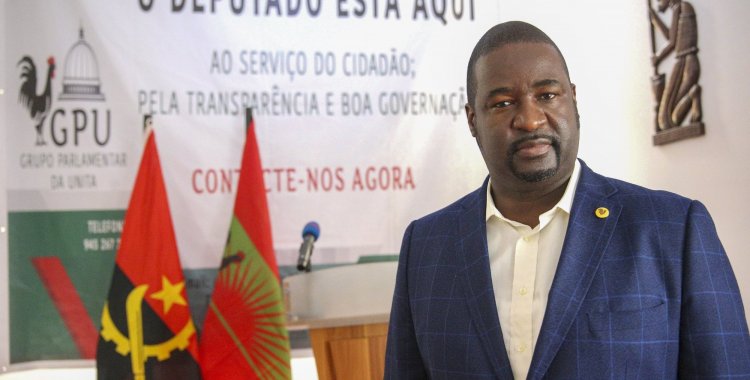Liberty Chiaka, reacted in statements to Lusa to the speech by João Lourenço, leader of the Popular Movement for the Liberation of Angola (MPLA), delivered on Friday, in which the also President of the Republic informed that a proposal for a new political-administrative division of the country.
João Lourenço exhorted, at the previous meeting of the central committee of the MPLA, the deputies to conclude the municipal legislative package, adding that he would soon deliver a proposal for a new political-administrative division of the country, "without colliding with the municipal power" and "in the spirit of the imperative need for governance ever closer to the citizen" in view of the enormous extension of the territory "which cries out for more provinces and municipalities".
The deputy from the National Union for the Total Independence of Angola (UNITA) stressed that the discussion of the proposed law should not be the will of a political group, but should reflect the national consensus, stressing that this exercise "touches with various situations, various motivations, political, social, economic, historical, even cultural".
"We must analyze together what are the advantages and what are the disadvantages", said Liberty Chiaka, defending that a division should not be made today and "after five years, a new government, not of the MPLA", make a new proposal of administrative political division.
"We want to appeal to the MPLA, the Government, the MPLA parliamentary group, which officially holds the parliamentary majority, which should be open to discussion from a patriotic perspective, not from a party agenda perspective, otherwise we will always be putting our country off", he stressed.
According to Liberty Chiaka, Luanda, the Angolan capital, is "the most recent example", since "in the last 20 years of peace, it has already suffered two or three changes in the political-administrative division", a situation that happens because the State is managed "from a party agenda perspective".
"But if the starting point is to listen with an open mind, listen, listen, to the contributions of different actors, be they political, civic, academic, we can have a result of a work that reflects the national vision, the national interest. That is the appeal we want to make", he underlined.
The deputy stressed that UNITA will be attentive when it receives the proposal, "to analyze in depth and safeguard that, at no time, the discussion of this proposed law means postponing the implementation of local authorities".
The Constitution of the Republic "is clear", continued Liberty Chiaka, "the autarchy in the current conditions takes place in all the municipalities".
"What we are not going to accept is an alleged justification that the creation of new municipalities means postponing the municipal calendar, this element is that we are not going to accept", he stressed.
"Where today we have communes, there is local State administration, therefore, there are people, there is a territory and there are administrative conditions for us to implement local authorities, whether at municipal or infra-municipal level, Angola has the conditions to set up autarchy", he added.
On the possible need to revise the Constitution of the Republic, put forward by João Lourenço, in his opening speech at the 3rd ordinary meeting of the MPLA central committee, Liberty Chiaka recalled that her party defends a constitutional revision.
The UNITA parliamentary leader said that there is a lot to look at in the current Constitution of the Republic, even after the punctual revision carried out last year, which among other aspects allowed for voting abroad and made the National Bank of Angola an independent entity.
"We have a lot to look at in our Constitution, from the list of powers of the President of the Republic, it is important to say that the excess of powers, from a discretionary perspective, if we have to compare presidential systems, such as the United States of America - the President also has powers – but there is a counterbalance, he cannot appoint, for example, the Chief of Staff of the Armed Forces without the approval of the Senate", he highlighted.
"If we evolve towards this framework in which the President takes initiatives, proposes, but the candidates are submitted to the National Assembly's scrutiny, we will have improved", he considered.
The politician ruled out any hypothesis of a proposed revision for a term extension.
"There is no chance, in this regard, if this is the intention of the President of the Republic, he knows that our vote is against. The Constitution is clear, older citizens can have up to two terms. The President of the Republic is now in his second and last mandate and one of the things that Angolans, particularly African leaders, must understand, the mission of building a State is not done only by one person or a Government", he observed.






